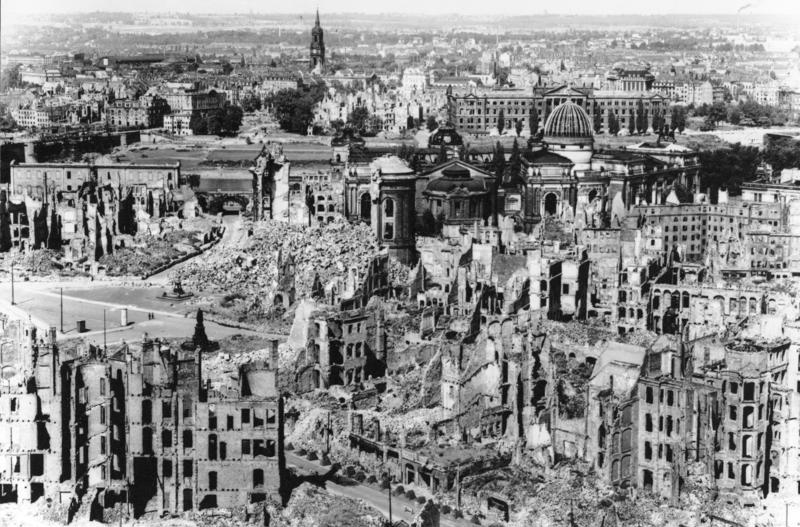by Matthew Gannon
On this Memorial Day 2013 let's not forget that Kurt Vonnegut himself was a veteran. How could we? His masterpiece, Slaughterhouse-Five, is famously based on his experiences as a prisoner of war during World War II. That novel, a vital contribution to American literature, was a powerful counter-narrative to the glorification of war and the uncritical memory of the American public. While many wars since World War II have been highly controversial, World War II is still often upheld as a righteous war fought by brave men against a seemingly insurmountable foe. Slaughterhouse-Five proved that even the enshrined World War II should be critically reexamined.
On this Memorial Day 2013 let's not forget that Kurt Vonnegut himself was a veteran. How could we? His masterpiece, Slaughterhouse-Five, is famously based on his experiences as a prisoner of war during World War II. That novel, a vital contribution to American literature, was a powerful counter-narrative to the glorification of war and the uncritical memory of the American public. While many wars since World War II have been highly controversial, World War II is still often upheld as a righteous war fought by brave men against a seemingly insurmountable foe. Slaughterhouse-Five proved that even the enshrined World War II should be critically reexamined.
In his reexamination Vonnegut didn't seek to diminish what the Allies accomplished or perversely argue that the Nazis weren't worth overthrowing. He did seek to reevaluate the way we remember and memorialize war. So what could be a better way to celebrate Memorial Day than to consider Vonnegut's words. Memorial Day officially pays its dues to those who perished in the service of their country. Vonnegut has lamented, "if only I’d managed to get myself killed in the war," because it is seen as the most honorable way to die. Fortunately, if improbably, Vonnegut lived through his combat and POW experience, even witnessing the firebombing of Dresden by Allied forces, an operation that killed one hundred and thirty-five thousand people in a matter of hours, destroyed over ninety percent of the city center, and was performed for questionable strategic reasons.
The world is a better since it had the luck of Vonnegut living in it. So even though Vonnegut is technically not one of those who are honored on this day of memory, his words carry more weight for having witnessed the horrors of war that most will never see. Even if most could see such horror, few could so successfully articulate their impressions as Vonnegut did in Slaughterhouse-Five. With that said, here is a passage from the autobiographical introduction to that novel in which Vonnegut grapples with the difficulty of talking sensibly about such atrocity:
Then she turned to me, let me see how angry she was, and that the anger was for me. She had been talking to herself, so what she said was a fragment of a much larger conversation. "You were just babies then!" she said.
"What?" I said.
"You were just babies in the war - like the ones upstairs!"
I nodded that this was true. We had been foolish virgins in the war, right at the end of childhood.
"But you're not going to write it that way, are you." This wasn't a question. It was an accusation.
"I - I don't know," I said.
"Well, I know," she said. "You'll pretend you were men instead of babies, and you'll be played in the movies by Frank Sinatra and John Wayne or some of those other glamorous, war-loving, dirty old men. And war will look just wonderful, so we'll have a lot more of them. And they'll be fought by babies like the babies upstairs."
So then I understood. It was war that made her so angry. She didn't want her babies or anybody else's babies killed in wars. And she thought wars were partly encourage by books and movies.
. . .
So I held up my right hand and I made her a promise: "Mary," I said, "I don't think this book of mine is ever going to be finished. I must have written five thousand pages by now, and thrown them all away. If I ever do finish it, though, I give you my word of honor: there won't be a part for Frank Sinatra or John Wayne."I tell you what," I said, "I'll call it 'The Children's Crusade.'"She was my friend after that.
Vonnegut's
unconventional narrative style and tendency to brush history against
the grain infuses traditional war rhetoric with a fresh perspective.
Only a carefully cultivated counter-memory can forestall the
inevitability of future wars. Because of this, Vonnegut's memory is
worth savoring and sharing on this Memorial Day 2013.
 | ||
| A pile of bodies gathered for cremation after the bombing of Dresden. |
 |
| Dresden in ruins after the bombing raid. |
 |
| A young Private Kurt Vonnegut in uniform. |



